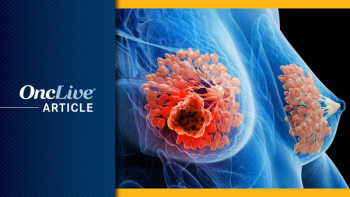
Introduction: Impact of Molecular Subtyping in Breast Cancer
For High-Definition, Click
In routine clinical practice, breast cancer detection and management remains dependent on invasive procedures, with a diagnosis and prognosis largely based on tumor histology. To aid in this process, there are a number of immunohistochemical and genetics tests available that are useful in supporting treatment decisions and determining prognosis, moderator Adam Brufsky, MD, suggests. These tests include Oncotype DX, Breast Cancer Index, and Prosigna.
Lee Schwartzberg, MD, provides a brief history of genetic testing and describes how the growing opportunity for subtyping breast cancer is creating a paradigm shift in the way oncologists think about breast cancer. Over the past 10 years there has been a shift from all women with a 1 cm or greater receiving chemotherapy to a personalized approached based on biology. Understanding the different subtypes of breast cancer has made a profound change on the management of the disease, Schwartzberg says.




































